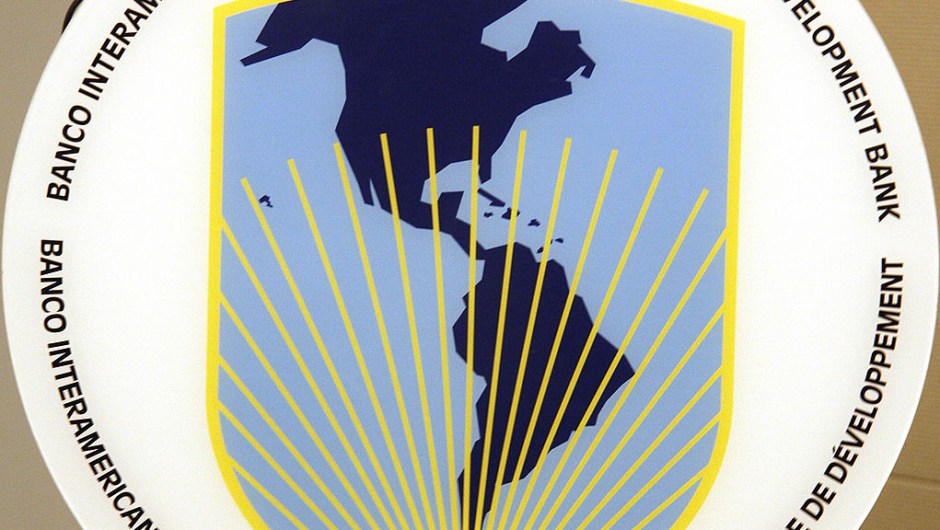Editor's Note: Jorge G. Castañeda is a contributor to CNN. He was Secretary of Foreign Relations of Mexico. He is currently a professor at New York University and his most recent book is "America Through Foreign Eyes", published by Oxford University Press. The opinions expressed in this column are solely those of the author.
(CNN Spanish) - The decision of the Trump administration to propose a US citizen for the next presidency of the Inter-American Development Bank has aroused a significant number of criticisms and rejections among Latin American and European circles.
These criticisms and rejections are fully justified.
Five former Latin American presidents, several former ministers of foreign affairs or finance from Chile, Argentina, Peru, Guatemala and other countries, as well as former senior North American officials, and the European Union's foreign policy officer have opposed this decision or have requested be postponed.
Washington has enough votes to impose its candidate Mauricio Claver-Carone, Trump's own former national security adviser for Latin America. Countries supporting the US candidacy include Brazil, Colombia, and Uruguay. That is to say, nations with an important weight in the decision, but it would not reach the support of at least 15 members, which is a condition to be able to assume the position.
Those who disagree with it invoke, first of all, an important tradition that dates back to 1959, when several Latin American presidents and the then president of the United States, Dwight Eisenhower, created the IDB as an institution that would receive funds from rich countries, mainly the United States. , to lend under concessional conditions to poor countries: Latin America. A foundational equilibrium was established: the bank would be located in the capital of the United States. The first vice president, in charge of the administration of the institution, would always be a North American, but the president of the bank would always be a Latin American, starting with Felipe Herrera from Chile.
The model on which this arrangement was based, which preserved the necessary balances between Americans, Latin Americans and Canadians, was the one that governed and continues to govern in relation to the Bretton Woods institutions since 1944.
The International Monetary Fund and the World Bank settled in Washington; the CEO of the IMF would always be a European and the president of the World Bank, an American.
Trump's decision breaks with tradition and the balances designed to take into account the different interests and sensitivities that led to the creation of the IDB.
The logical thing would have been that an institution destined to lend resources to more than 30 Latin American countries was in Latin America. The logical thing would have been that an institution that would disburse mainly American money, was chaired by an American.
The appointment of Mauricio Claver-Carone upsets these balances and creates an additional problem. Several European nations also contribute social capital to the IDB and have strongly opposed the break with tradition, precisely because they are inspired by the Bretton Woods agreements. If a tradition can be violated, the Europeans tacitly argue, why wouldn't another American administration in the future, or a Chinese government, for example, come and say that the IMF CEO should no longer be a European?
The second, less explicit, but equally significant reason why Claver-Carone's nomination has attracted criticism resides not in his nationality, but more in the personality of the candidate, which recently predominated in the way in which he rejected the opposition of some countries at your choice. Although Mauricio Claver-Carone does have experience in international financial institutions, he is a former Cuban-born official, lawyer, and activist who has dedicated a lot of time and effort to the anti-Castro cause in Florida.
He is a supporter of Senator Marco Rubio, also from Florida and of Cuban descent, who has been the architect of the reimposition of different sanctions by the Trump administration on Havana. Latin Americans who oppose his election may consider that placing a combative American of Cuban origin in that position would send the wrong message to sympathetic governments of the island - Mexico, Argentina, Nicaragua, Venezuela - and could lend itself to various maneuvers to politicize the Bank and strengthen US sanctions against the Cuban dictatorship.
Luck is not cast. For Claver-Carone to be elected at the IDB's September Assembly, if it is not postponed as requested, not only are the votes of the borrowing and non-borrowing countries necessary. 75% of all bank members, including Europeans, must also attend for the Assembly to be installed. The United States has already met the first two requirements, but if Europe, Mexico and Argentina do not attend the Assembly, there would be no quorum, no Assembly, and no election of a new director.
Recently, Mexico has winked at the candidate proposed by Argentina, Gustavo Béliz. And both governments have said that it seems inappropriate to make a decision of this magnitude and that it implies a break with traditions so ingrained a few weeks before an election in the United States that could change everything. But if Trump insists on placing Mauricio Claver-Carone in case he loses the election, the pressure he will exert on Mexico and Buenos Aires will be difficult to resist.
In effect, what is at stake here would be to violate another important tradition, namely: the governments of the United States do not make decisions of this type so close to a presidential election that, by definition, any president can lose. Legally, Trump can do whatever he wants until January 20. But politically it seems insensitive to propose such a controversial appointment finding itself so low in the polls and so shortly after November 3. Hopefully Trump abandons this fanatic insistence. Hopefully it respects the traditions and balances in force. Hopefully the Europeans, Mexico and Argentina resist until the end. In my opinion, the appointment of Claver-Carone would be bad news for Latin America.
IDB

